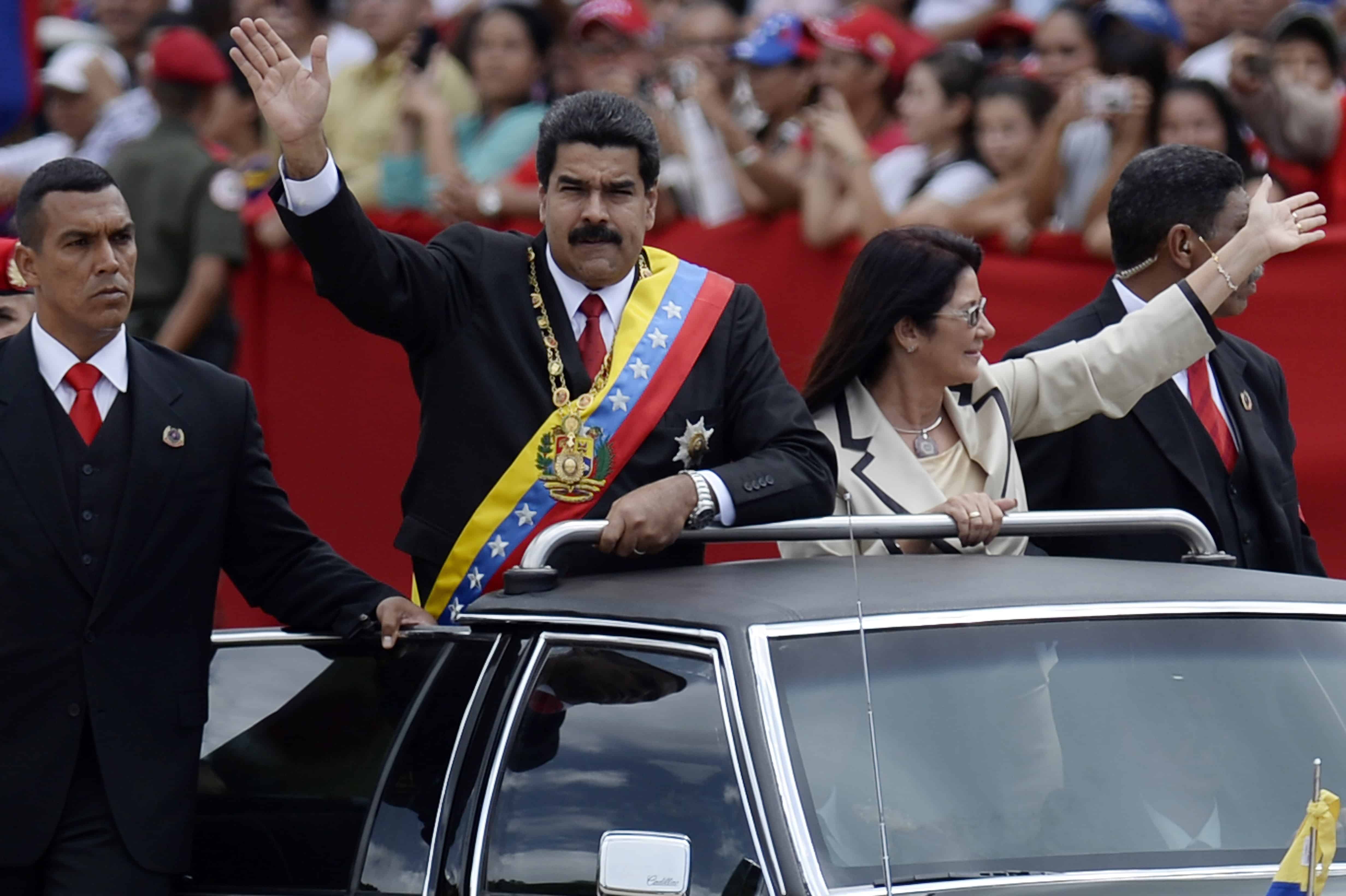CARACAS, Venezuela — In the 15 months since Hugo Chávez’s demise, his successor, Nicolás Maduro, has kept the Chávez enterprise rolling, sticking to the comandante’s policy prescriptions like an executor carrying out a will.
But no last testament could have prepared Maduro for Venezuela’s current economic death spiral, with annual inflation of 60 percent and shortages of everything from coffee to coffins to airline tickets. The house of Chávez is crumbling around him.
With pressure building for Maduro to change course, he is showing signs of adopting a more pragmatic approach, analysts say, even as it sets up a potential split with the other heirs of “chavismo.”
In late June, Maduro fired Chávez’s economic policy guru, Jorge Giordani, the elderly university professor who had the comandante’s ear for most of the 14 years he was in power. Giordani was widely viewed as the architect of the disastrous currency controls that have choked imports and left supermarket shelves bare.
After cutting Giordani loose, Maduro officials promptly announced new meetings with foreign creditors and said that Venezuela’s exchange system needed to be overhauled. Maduro announced that he would review and restructure the government during the first 15 days of July.
“We are going to go to a complete shake-up of government operations to enter into a stage of true efficiency,” he said.
Said one member of Chávez’s United Socialist party, criticizing the way once-productive private companies that were nationalized have been run into the ground: “Maybe it wouldn’t be so bad for the government to have economic advisers who were not only Chávez supporters, but economists, too.”
But if removing Giordani was a first step in a good-faith attempt at turning around Venezuela’s tanking finances, it’s a path that may carry more political risk for Maduro than the street protests he has weathered for nearly four months.
Lock-step unity — glued together by Chávez worship — has been holding together the late leader’s United Socialist Party, with Maduro at the helm. The sacking of Giordani has exposed Maduro’s left flank, leaving him open to criticism that he isn’t living up to the comandante’s last wishes.
After his dismissal, Giordani published an open letter saying Maduro’s weakness as a leader was “painful” and “alarming,” while blaming him for turning a blind eye to rampant corruption within his administration.
Maduro called Giordani’s letter a “betrayal” of Chávez’s socialist revolution, but other Chávez loyalists and former officials sided with Giordani. One of them, former education minister Héctor Navarro, was promptly stripped of his seat on the leadership council of the United Socialist Party and referred to its disciplinary committee.
That led other Chávez supporters to charge Maduro officials with stooping to Stalinist-type intimidation tactics to silence dissent.
Analysts in the country point to a rift between “radical” and “pragmatic” Chávez followers, and the episode has underscored the squeeze facing Maduro as a president who derives much of his political legitimacy from being Chávez’s anointed successor, not from a following of his own.
The division is similar to the one that has weakened Venezuela’s anti-Maduro opposition, which has been unable to overcome a split between moderates, led by former presidential candidate Henrique Capriles, and more confrontational figures, like jailed protest leader Leopoldo López, who is scheduled to go on trial July 23, and deposed congresswoman María Corina Machado. The moderates have been willing to engage Maduro in negotiations — now frozen — while the more hardline set has boycotted the meetings with his administration.
The fragmentation is part of the broader political breakdown in Venezuela that has followed Chávez’s death from cancer in March 2013, leaving his supporters and opponents unmoored, said economist Arlán Nárvaez.
“Before, there was only Chávez, and people were either for him or against him,” Nárvaez said. “He held together [his supporters] and the opposition, and now both are coming apart.”
Maduro is in a”devilishly” difficult bind, Nárvaez said, because the economic measures he needs to take, like reducing government spending and allowing a currency devaluation, are certain to fall hardest on the poor Venezuelans who are Maduro’s support base.
Yet the longer he waits, Nárvaez said, the worse the pain will be, like putting off a trip to the dentist “for a cavity.”
Venezuela has no elections scheduled this year, so even with his approval rating in the 30s, Maduro may have time to recover before parliamentary elections in 2015. He also benefits from the recent spike in oil prices and may be able to use some of the windfall to offset austerity measures.
Otherwise, it’s a grim outlook for Maduro, said Caracas political analyst Carlos Raúl Hernández, with plenty of economic pain and few political advantages in the short term.
“He’s between two monsters,” Hernández said. “If he doesn’t do anything, it’ll lead to disaster, and if he takes action, his administration won’t see the benefits” if he ushers in a period of hardship that bolsters Venezuela’s opposition and alienates the Chávez support base.
“Everyone’s waiting to see what he’ll do next.”
Follow all of our stories on Venezuela at hashtag #Bolivarian Revolution.
© 2014, The Washington Post





